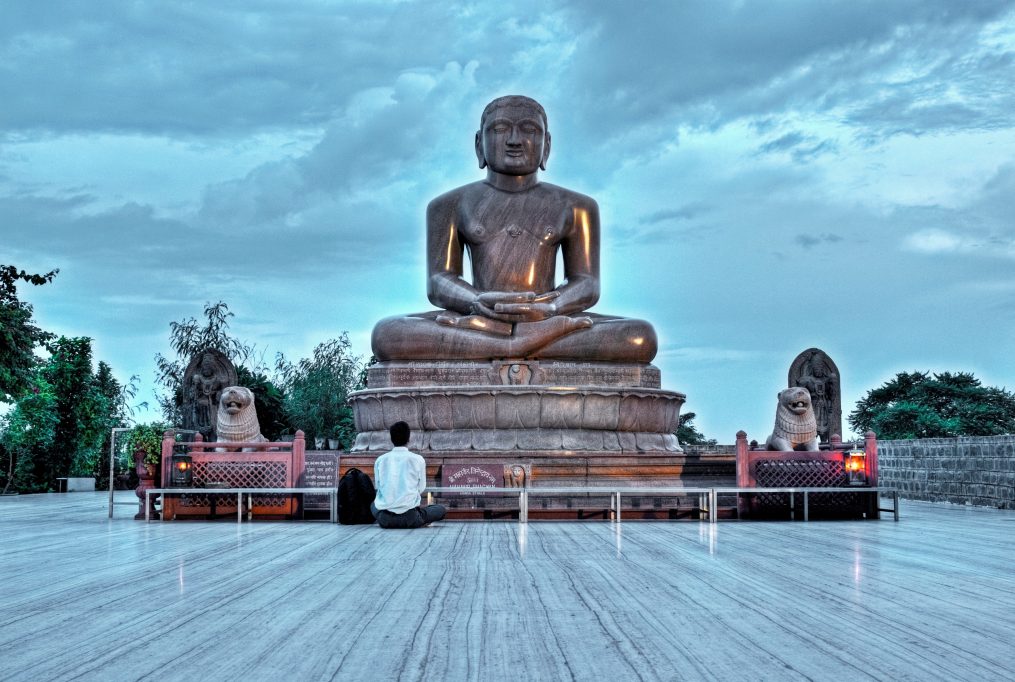Lord Mahavira is the twenty-fourth Tirthankar. He was born in 599 B.C. at Kshatriyakund which was a part of the well known Vaishäli republic. His father's name was King Siddhärtha and his mother's name was Queen Trishalä.
According to Jain texts, Mahavira's childhood name was Vardhamāna ("the one who grows"), because of the increased prosperity in the kingdom at the time of his birth. He was called Mahavira ("the great hero") because of the acts of bravery he performed during his childhood. Mahavira was given the title Jīnā ("the victor or conqueror of inner enemies such as attachment, pride and greed"), which later became synonymous with Tirthankara.
Lord Mahavira is often credited with the advent of Jainism in India. However, Jainism existed even before Lord Mahavira was born. He is supposed to be the twenty-fourth (last) Tirthankara according to the Jain philosophy. A Tirthankara is an enlightened soul who is born as a human being and attains perfection through intense meditation. Rishabha was the first tirthankara.
For a Jain, Lord Mahavira is no less than God and his philosophy is like the Bible. Born as Vardhamana Mahavir, he later came to be known as Bhagvan Mahaveer.
Though he had all the luxuries of life at his command, he led a very simple life. He left all his worldly possessions after his parents expired and became a monk. He gave up all pleasures and left his family for the purpose of attaining enlightenment.
His teachings were based on the concept of self-realization for ultimate attainment of Moksha. He taught people how to gain freedom from misery, pain and the cycle of birth and death. Lord Mahavira was known to be omniscient, which means he knew everything about past and future.
Mahavira preached non-violence, urging his followers to show kindness to all living creatures, and to become vegetarians so that animals would not be killed for food.
Mahavira died at the age of 72, near Rajgir in Bihar.
Some followers of Mahavira followed a severe path of renunciation to the extent of discarding clothes. They were called digambaras (the sky clad). Digambaras were orthodox followers of Mahavira. They kept long fasts and led an extreme austere life. Others who used to wear white tunics, considered it a duty to fulfill their obligation to society. They were called svetambaras (the white clad). They kept fasts but did not believe in extreme penance and austerity.
